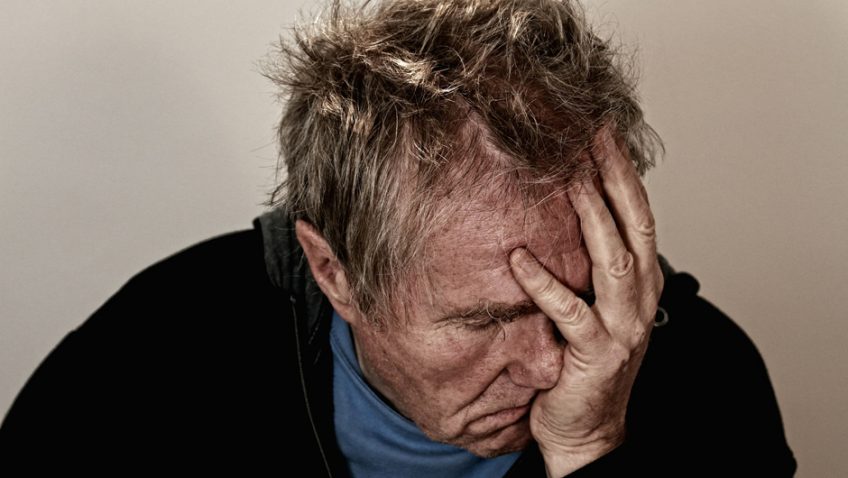In the UK, every year, one in four of us is affected by a mental health problem. Indeed, poor mental health affects more people in the UK than heart disease or cancer. Yet there remains a stigma attached to mental health that seems to be hard to shift, particularly when it comes to mental health problems in men; an estimated 40% of men won’t talk to anyone about their mental health. But could changing the way we talk about men’s mental health tackle the taboo and encourage more men to speak out and access support?
A new report from The Men’s Health Forum, entitled, ‘Mind your language: how men talk about mental health’ aims to review the language used in relation to men’s mental health and the impact it can have.
The report highlights shocking statistics that paint a frightening picture of the crisis in men’s mental health. Figures show that 73% of adults who ‘go missing’ are men; 87% of rough sleepers are men; men commit 86% of violent crime and are twice as likely to be victims of violent crime and men account for three-quarters of suicides.
Something is going wrong. Why is it that more men are subject to such behaviours and are not, instead, accessing means of help and support? With men making up just a third of referrals to NHS talking therapy services, there are clearly barriers that need to be broken.
Comedian, actor and writer, Robert Webb, in his recent memoir, How Not to Be a Boy, said of emotion, “If it has to come out at all, let it come out as anger. You’re allowed to be angry. It’s boyish and man-like to be angry.” Webb’s reflections on his own experiences of growing up in the 1970s and being encouraged, as a young boy, to observe certain gender-specific ‘rules’, including, “not crying” and “not discussing feelings”, explore the idea of gender stereotyping and the impact it had. his memories, as well as familiar phrases like ‘man-up’, will resonate with many.
This stereotypical, perceived, masculine mould can be hard to crack and goes hand-in-hand with the stigma attached to mental health; such ideas, and the words we use to uphold them, may account for a mind-set which makes men less likely than women to acknowledge and seek help with mental health issues and less likely to engage in conversation as a method of treating mental health problems.
Stigma
Research for the ‘Mind Your Language’ report showed that: “34% (of men) would be embarrassed or ashamed to take time off work for mental health concerns such as anxiety or depression compared to 13% for a physical injury,” suggesting that there is, “an elevated level of stigma amongst men… (and) mental health.”
The report examines how the use of language could encourage men’s engagement in mental health services and looks at how services can be made more relevant to men.
Among professionals, there is some conflict of opinion about the language used in relation to men’s mental health. While some believe that colloquial language is influential in attracting and making sense to men, others argue that more clinical terminology should be used to promote clarity and reduce stigma. The ‘Mind Your Language’ report poses the question: ‘would professionals prefer that men used medically-approved terms but eschewed their services or used more colloquial expressions but turned up?’
To dig deeper into perceptions of language use, the study used focus groups made up of men from diverse socio-economic backgrounds, across a range of job roles and industries and included unemployed, employed and retired men. Overall, it was found that, while there is no ‘one size fits all’ word or phrase for engaging men to talk about mental health, the word ‘stress’ is probably the strongest contender.
Generational differences
Interestingly, there was a difference of opinion among different age groups, perhaps reflecting a generational difference in mindset when it comes to men’s mental health. Generally speaking, the study revealed that older men were more comfortable with words such as, ‘stress’, ‘stressed out’, ‘overwhelmed’ and ‘overloaded’, while boys and young men were more comfortable using words like ‘emotional’, ‘depressed’ and ‘anxious’.
Findings such as these are a step in the right direction for establishing good practice when it comes to encouraging men to engage with mental health support services. The study recommended that professionals should use language to suit individuals or groups, as using terms that men themselves use, will increase initial engagement.
All of us, at one time or another and regardless of gender, can hit a crisis and all of us will need support. An awareness of the language we use and the impact it may have could make a difference, particularly for men – there’s no room for the ‘man up’ mind-set when it comes to mental health.
Depression and anxiety are perfectly legitimate reasons to seek support and medical care and anyone experiencing symptoms should do so. The NHS advises seeing your GP if you’ve been feeling depressed for more than a few weeks or if your anxiety is affecting your daily life. If you want to talk to someone right away, for a list of organisations you can call for immediate help, visit: www.nhs.uk/conditions/stress-anxiety-depression/mental-health-helplines





